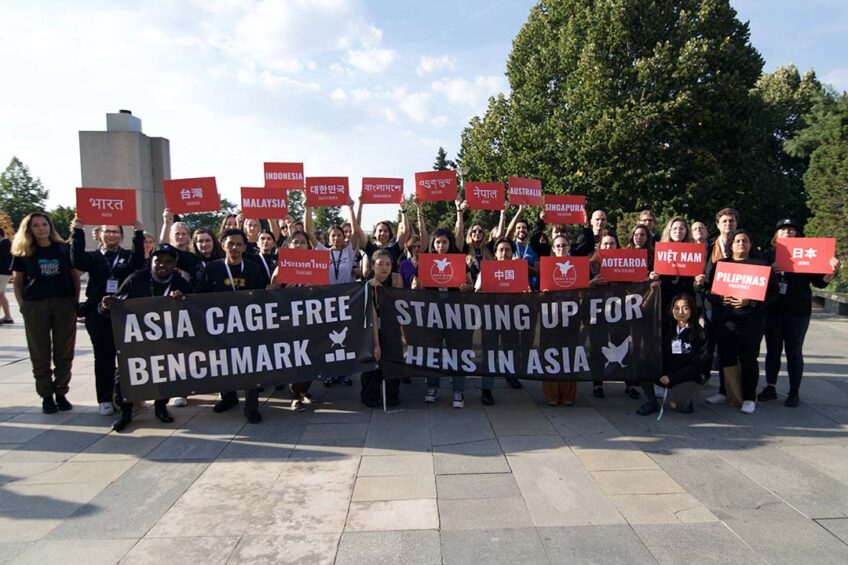How is the cage-free egg transition in Asia progressing?

Amidst rising consumer concern for animal welfare and increasing commitments from companies to source cage-free eggs, the launch of the inaugural Asia Cage-Free Benchmark is a call for deeper engagement from governments in Asia. The report assesses the progress of governments across the region in supporting the industry shift towards cage-free farming.
The Open Wing Alliance, a global coalition of 100 organisations spanning 72 countries across 6 continents, announced the launch of the Benchmark report in which 17 countries across East Asia, South and West Asia, and Southeast Asia, Australia, and New Zealand (SEAANZ) were evaluated on 3 key pillars – ending cages, policy framework, and welfare standards – with a maximum score of 140 points.
Rankings – NZ comes out on top
New Zealand ranked first in the Benchmark with a score of 86 points. Israel came in second with a score of 78, followed by Australia with 62 and Bhutan with 44. Conversely, Bangladesh, Malaysia and Vietnam ranked equal lowest in the Benchmark with 4 points, trailing Singapore with 6 points, Nepal with 6.5 points, and Japan with 8 points.
Jonathon Tree, director of campaigns and international affairs, Environment & Animal Society of Taiwan (EAST), a member organisation of the Open Wing Alliance, said that it is imperative that Asian governments actively support the transition towards cage-free farming to ensure a seamless shift for consumers and industry stakeholders. He added: “By providing regulatory clarity for corporate buyers, industry can move towards higher animal welfare standards.”
Consumer concern and company commitment
A 2022 study found that an average of 86% of consumers in 8 countries in the Asia Pacific express significant concern for farmed animal welfare. Additionally, companies from global leaders like Nestlé, Unilever, Burger King, KFC, and Marriott, to regional Asian firms such as Minor Foods and Jollibee Foods Corporation have committed to eliminating battery cages in favor of cage-free egg practices.
Asia is home to billions of birds
“Approximately, 63% of the world’s commercial laying hen population, equivalent to more than 3 billion birds, is located in Asia,” says Tree, adding that an estimated 90% of laying hens in Asia spend their lives in cages.












